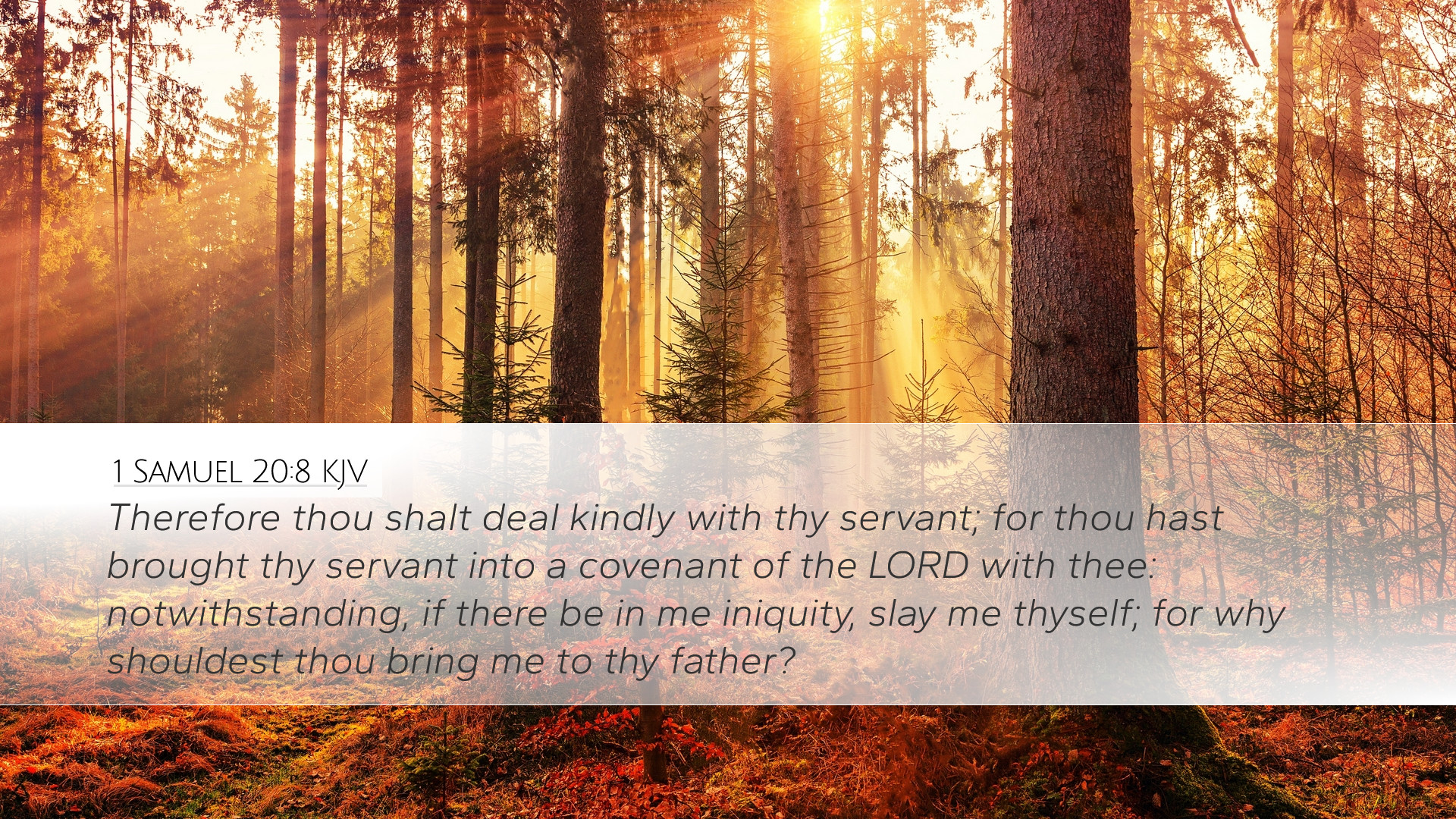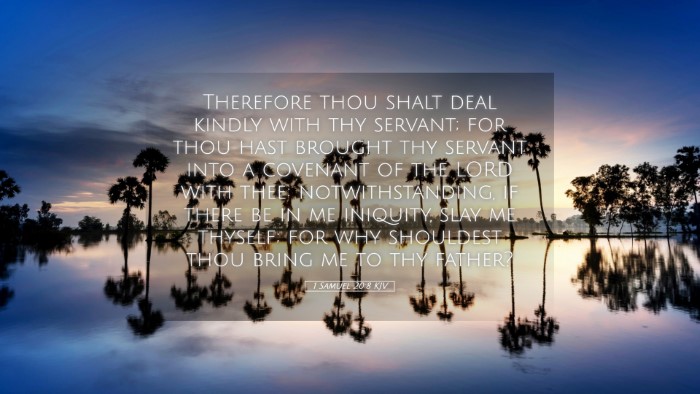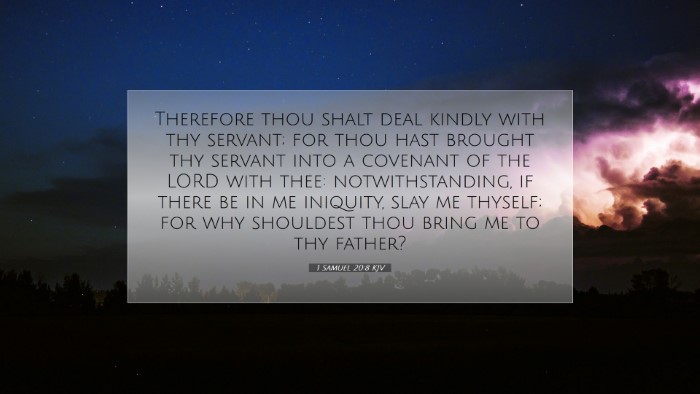Commentary on 1 Samuel 20:8
Verse Context: 1 Samuel 20:8 reads: "Therefore thou shalt deal kindly with thy servant; for thou hast brought thy servant into a covenant of the Lord with thee: but if there be in me iniquity, slay me thyself; for why shouldest thou bring me to thy father?" This verse occurs in the context of a deepening friendship and covenant between David and Jonathan, set against the backdrop of Saul's growing animosity toward David.
Overview
This verse signifies David’s appeal to Jonathan for loyalty and truthfulness amidst tension. It highlights the gravity of friendship and covenant relationships in the biblical narrative, emphasizing the themes of loyalty, sacrifice, and the implications of divine covenant.
Insights from Commentaries
Matthew Henry
Matthew Henry emphasizes the relational dynamics between David and Jonathan. He notes that David's plea for kindness stems from their covenant partner relationship: "The covenant made between them was a sacred bond." Henry suggests that David's words reflect his heart's integrity and the urgency of situational awareness, as he acknowledges the potential for suspicion regarding his righteousness.
- The Value of Covenant: Henry points out the necessity of fidelity to one’s covenant partner, indicating that friendship rooted in God’s covenant demands responsibility and faithfulness.
- Self-Examination: He remarks on David's willingness to be judged by Jonathan, indicating a level of humility and accountability uncommon in typical friendships.
Albert Barnes
Albert Barnes further elucidates the complexities of David’s situation. He interprets David’s request as a significant expression of trust in Jonathan. Barnes argues that this moment reveals the divergent paths of Saul and David as pitted against the backdrop of the divine selection of David as Israel’s future king.
- Trust and Loyalty: Barnes highlights that David’d plea underlines a profound reliance on Jonathan's integrity and strength of character amidst his father’s treachery.
- The Test of Friendship: His insights suggest that true friendship is often tested in adversity, and Jonathan’s response would reveal much about his character and commitment to their bond.
Adam Clarke
Adam Clarke offers a more expansive view of the covenant between David and Jonathan, emphasizing the cultural significance of such agreements in the ancient Near East. Clarke notes that David’s invocation of covenantal kindness is not merely a request but a deeply entrenched duty in the context of their relationship.
- Ancient Covenants: Clarke posits that in ancient times, a covenant often implied a binding agreement where both parties were expected to maintain loyalty and support regardless of circumstances—reflecting the depth of their bond.
- Public vs. Private Allegiance: He also points out the contrasting allegiances: Jonathan is the son of Saul yet is bound by loyalty to David—this duality speaks volumes about divine orchestration and the complexity of human relationships.
Thematic Reflections
The key themes from 1 Samuel 20:8 revolve around loyalty, accountability, and the nature of divine covenants. Each commentary offers its unique perspective, yet all converge on the essence of true friendship as founded in trust and fidelity.
Loyalty in Covenant
David’s interplay with Jonathan represents a model of loyalty that transcends familial ties and political pressures. This serves as an example for contemporary believers, who are often faced with challenges to their commitments when fidelity to God beckons.
Accountability Before Friends
David's openness in asking Jonathan to judge his heart emphasizes the importance of accountability in relationships. It challenges pastors and scholars to consider the breadth of their own relationships and the value of being truthful with trusted friends.
The Divine Narrative
David's reliance on Jonathan underscores the overarching divine narrative of redemption and the sovereign choices of God. For students and theologians alike, it poses questions about the intertwining of divine providence and human agency.
Conclusion
1 Samuel 20:8 serves as a poignant reminder of the complexities of human relationships, particularly those tied in covenant. The insights gleaned from public domain commentaries instill vital lessons for pastors, students, and scholars alike about loyalty, the essence of friendship, and the enduring significance of divine commitments.


